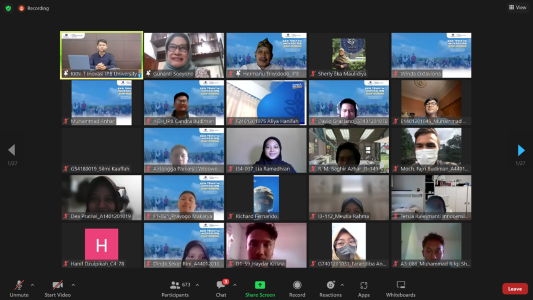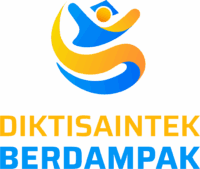Improving the Preparation of Prospective Innovation KKN-T Participants, DPMA IPB University Again Holds the 3rd Debriefing Lecture for Students

The Directorate of Agromaritime Community Development (DPMA) IPB University held the third debriefing lecture for Innovation Thematic Real Work Lecture (KKN-T) students online. Carrying the theme ‘Sustainable Development of Agromaritime Communities to Achieve Socio-Resilience’, this KKN-T Innovation was held as a form of implementing the tri dharma of state universities, namely community service.
In his presentation, Dr Sofyan Sjaf, Dean of the Faculty of Human Ecology (Fema) IPB University said, villages are the foundation for the development of a country through the wealth of natural potential contained therein. However, he said, the fact is that currently Indonesia is still failing in food sovereignty caused by several factors, one of which is the weakness of resources in the agricultural and rural sectors.
“In the context of KKN, these problem spaces need to be explored further so that we can develop them according to the innovations that IPB University has. In the 4.0 era, sociology also sees the importance of big data in rural areas, because everything we do must be based on proper planning,” he explained.
Furthermore, he said that proper planning must be based on precise and precise data. In this way, all forms of decisions, planning, implementation and evaluation are never misplaced.
In addition, the students were also provided with lecture material on ‘Zoonosis and Animal Health’ which was given by Prof. drh Gunanti as the Director of the IPB University Animal Hospital. He said that zoonoses are diseases that can be transmitted from animals to humans or from humans to animals.
“Zoonosis can be caused by various types of microorganisms such as bacteria, viruses, parasites and fungi which can be transmitted directly such as bites and scratches, or indirectly (vector). The groups considered to be at high risk of contracting zoonoses range from breeders, agricultural workers, animal laboratory workers, veterinarians, animal medical personnel, to pet owners,” he explained.
Zoonoses, said Prof Gunanti, can be suppressed with a ‘One Health’ approach, a collaborative approach in the health sector that recognizes the link between human, animal and environmental health. This approach recognizes that human health, animal health and ecosystem sustainability are interrelated and influence each other.
The debriefing lecture was closed with material delivered by Prof Hermanu Triwidodo, Head of Farmers and Fishermen Center (TNC) IPB University. In this activity, he introduced one of IPB University’s innovations in the form of services for farmers and fishermen. According to him, TNC can be used as a link between farmers, fishermen and rural communities with the IPB University academic community and vice versa.
“TNC also functions as a source of information on agricultural and fisheries science and technology which is supported by 71 IPB University Expert Councils. Through KKN-T Innovation later, it is hoped that we can be closer to the community and vice versa, so that we can provide the best service,” he concluded. (*/Rz) (IAAS/Res)



